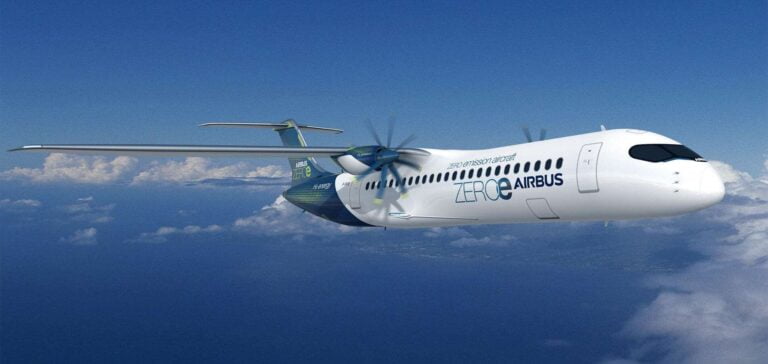Hydrogen aircraft for commercial flights are of joint interest to the three giants Air Liquide, Airbus and Groupe ADP.
Together, the three companies want to prepare for the arrival of hydrogen at Paris airports by 2035.
Preparing airports for hydrogen-powered aircraft
This partnership supports the decarbonization of the aeronautical industry by defining the opportunities that hydrogen can bring to the aeronautical sector.
In addition, French airports will need to be adapted for the arrival of the first hydrogen-powered commercial aircraft.
Particularly when it comes to supplying liquid hydrogen.
This is why Air Liquide, Airbus and Groupe ADP are concentrating on carrying out feasibility studies aimed at modernizing airports in this direction.
Assess hydrogen supply possibilities
An initial study will be based on a representative panel of some 30 airports to assess potential configurations for liquid hydrogen supply.
Next, several scenarios and detailed plans will be drawn up for Paris-Charles de Gaulle and Paris-Orly airports.
This will enable engineers to determine the required infrastructure and integrate conditions relating to industrial and aviation safety standards.
The commitments of the three companies in the hydrogen era
Firstly, Air Liquide, a hydrogen pioneer, is committed to responding to the climate emergency, and in particular to the goal of carbon neutrality by 2050.
Over the past 50 years, the company has developed its expertise and today masters the entire hydrogen supply chain.
It is currently aiming for 3 GW of electrolysis capacity by 2030, and is investing 8 billion euros in the value chain by 2035.
What about the aerospace sector?
Secondly, Airbus is committed to leading the decarbonization of the aerospace sector, and limiting its industrial environmental footprint worldwide.
The company is thus helping to meet the aerospace industry’s key environmental performance targets.
As part of this commitment, Airbus is aiming to market the world’s first zero-emission commercial aircraft by 2035.
ADP Group to manage hydrogen integration at airports
Last but not least, the ADP Group has created a unique ecosystem for the gradual integration of hydrogen into Paris airports.
The company emphasizes the need to transform airports into hydrogen hubs, to welcome hydrogen aircraft by 2035.
According to the Group’s vision, sustainable solutions such as the development of hydrogen encourage the decarbonization of air transport.
A shared ambition for more sustainable aviation
Matthieu Giard, Vice-President of Air Liquide’s Hydrogen activities, recalls the need to act now, to accelerate “the development of the hydrogen sector”.
He explains that Air Liquide will contribute its unique expertise in “liquid hydrogen, which requires advanced mastery of extreme cryogenics”.
In conclusion, the three companies plan to work together “to accelerate the energy transition and build the future for more sustainable aviation”.






















